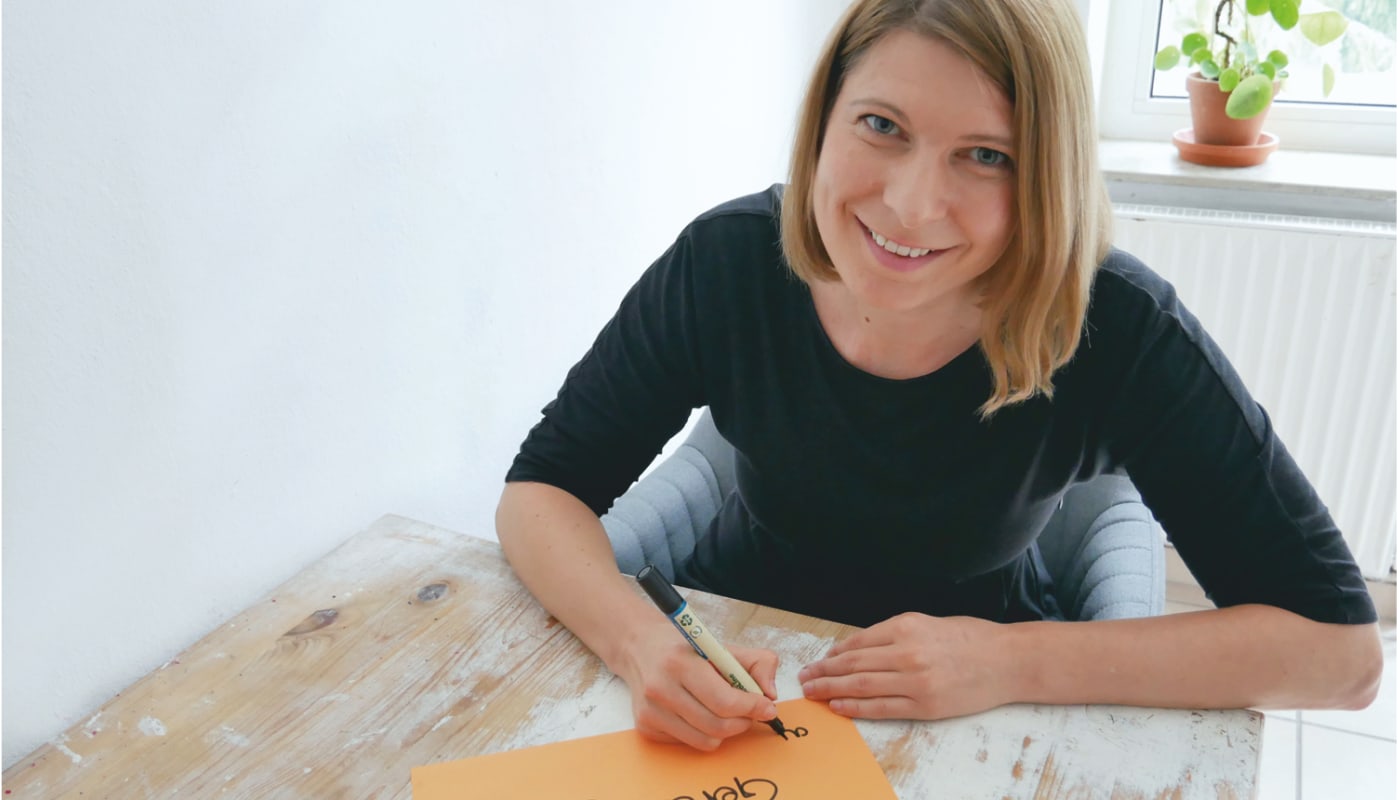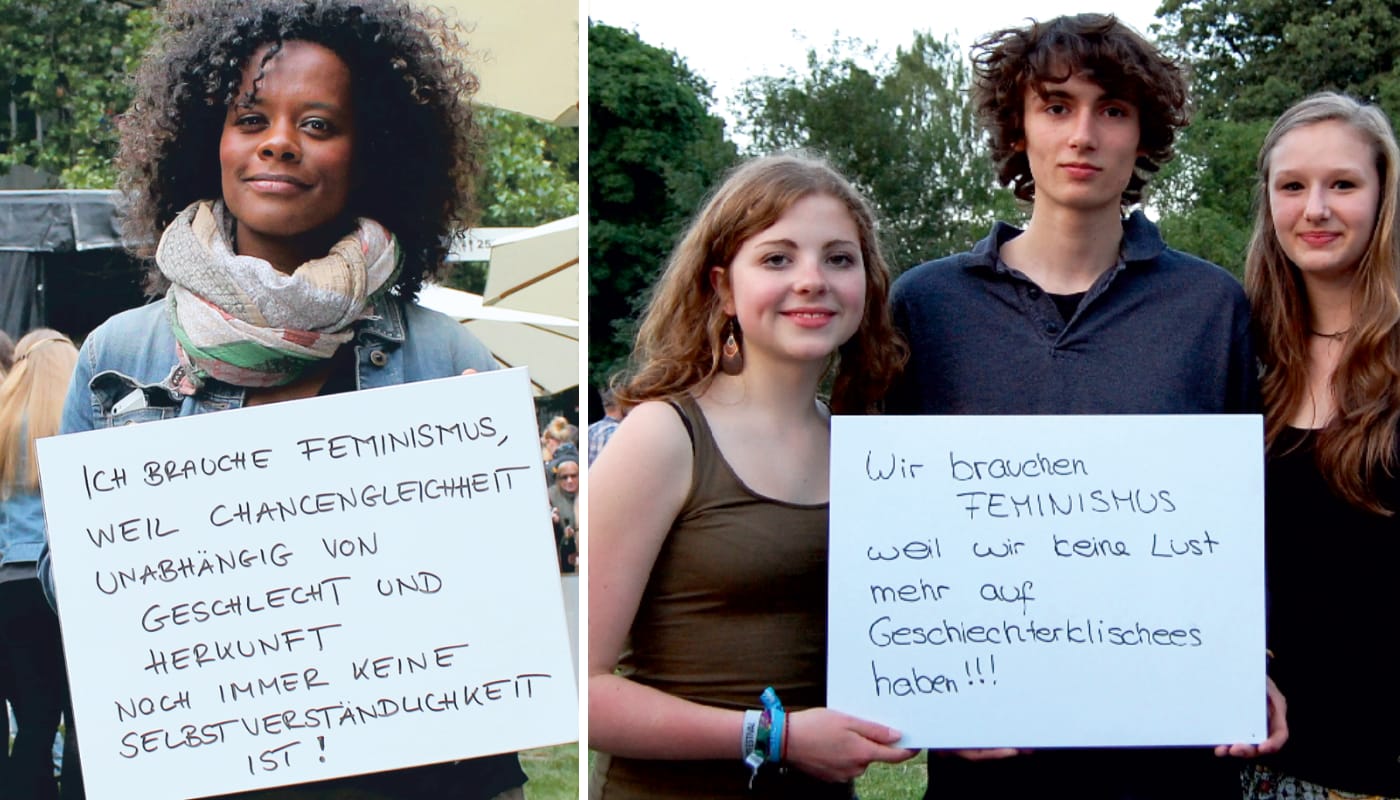“Who Needs Feminism?” is an inquisitive campaign Jasmin has been exploring for nearly nine years. In our interview, she discusses how it all started, her journey, roadblocks and networking during a pandemic. Of course, she also gives us a glimpse into her Spreadshop!
Feminism then & now
Hi Jasmin, thanks for taking the time to answer our questions! Can you tell us about yourself and how you came up with the idea for the campaign: “Wer braucht feminismus?” (translation: “Who Needs Feminism?”)
My full name is Jasmin Mittag and I live in beautiful Hanover, Germany. I’ve been working as a freelance activist and artist for about ten years now, and through my daily work I try to make people aware of socially relevant issues, to empower them and to network. “Who Needs Feminism?” is something I developed based on the photo campaign “Who needs feminism?” which was created by American students and initiated in Germany.

What were the beginnings of the campaign like? Do you find that feminist demands are more visible today than when you first started your work?
When I started in 2012, it was really not easy to get the campaign off the ground and to gather feminist statements. On the one hand, I myself was new to the networking scene. On the other hand, people in German-speaking countries were not yet so willing to profess feminism themselves in photos.
Today, I believe feminist demands have become more visible and more widespread. We are networking more and more, and there are more role models who make feminism their motto.
It’s incredible that you’ve been running “Who Needs Feminism” since October 2012. How have the needs of those joining the movement changed since then?
We have collected over 3,000 statements in German-speaking countries since 2012. Each statement is always new and individual; unfortunately, there are far too many reasons why we still need feminism today. The basic issues have not changed yet. Above all, we all want more justice, equal opportunities and freedom through a more open society and fewer gender role barriers. I have the impression that we are becoming more concrete on some issues, though, like abolishing the tax on menstrual products.

Community helps the movement grow
Which channels do you use to connect with your supporters? Do you have a preferred platform where you exchange ideas with other feminists?
It is important to us that we reach people in different ways and, above all, directly. That’s why we are very happy and proud that there has been a traveling exhibition since 2014, it’s already been exhibited in over 40 places in Germany. It’s primarily exhibited in town halls and libraries or even universities. With our podcast and via social networks, we again reach a different, often younger audience. We are particularly active on Instagram at the moment. However, because we do our grassroots work on a voluntary basis, it’s only possible for us to be constantly present and to exchange with our community to a limited extent.
Speaking of discussion and conversation within your community: How has your work changed since the beginning of the pandemic?
We usually organize feminist exchange and networking events from time to time, especially in Hanover: Conferences, breakfasts, discussion groups, input evenings. That has fallen away a little, now we’re doing some things digitally. But that’s not quite the same, as it’s more challenging to network and strengthen a movement online. The actions taken as part of the spread of the coronavirus have unfortunately amplified a number of feminist demands. For example, issues such as domestic violence and the imbalance in domestic labor and care work have become even more pronounced.
Yes, these are very serious issues, it’s great that those affected have a platform through you. Regarding the challenge of virtually networking: How do visitors actually react to your exhibitions beyond social media?
The charming thing about “Who Needs Feminism?” is that we let people speak for themselves and that it is a participatory action. We don’t dictate to anyone how feminism should be defined or lived. We give people a platform, make them role models and strengthen feminist issues. That goes down very well. There are no pointing fingers. We ourselves are constantly learning. Feminism is evolving. It’s about recognizing and naming problems and working with them. However, we have the impression that there is still a lot of work to do, especially when we look at existing structures. For example, feminism and the history of the women’s movements are still not firmly anchored in German curricula. How can it be that not all students learn something about important social movements? It stuns me. So many people still don’t know what feminism even means.
How merch can promote feminism
You have a unique style with select products in your Shop – how did that come about?
On the one hand, we are “Who Needs Feminism?” – a campaign and volunteer initiative that seeks to improve the image of feminism and bring certain issues to light. That’s why we rely on a simple, modern design. On the other hand, our attitude tends to be critical of consumption. However, we would like to empower ourselves and our community to adorn themselves with “Who Needs Feminism?” merch and are very happy that it is possible to do so in an uncomplicated way through Spreadshop.
We’re glad to have your Shop on our platform! Which feminist cause is the most important to you personally? And what does feminist activism in the future look like for you?
For me personally, the most important thing is that we all have an awareness of problems, perceive inequalities and bring them into conversation.
In addition, I really wish that the women’s movement would finally get the recognition it deserves. We would be living in a very different world today if many courageous people hadn’t rebelled against laws and conventions over the last 150 years.
In the past, women were not allowed to graduate from high school or go to college, they were not allowed to vote or to be elected, and they were not allowed to determine the use of their labor – to name just a few examples. I am so grateful that all of that has changed now. I hope that everyone will contribute to social change as best they can within their sphere of influence, and that activism will not remain the effort of a few, but instead will become embedded in our daily lives. We all share in this responsibility.
Thank you very much for the interview! We wish you continued success with your campaign in the fight for more justice, equal opportunities and freedom.
Are you interested in “Who Needs Feminism?” Discover what they’re up to and get involved here.
Instagram | Spreadshop | Facebook | Pinterest | Twitter | Tumblr
I would say only thing about women she deserves everything in life because she is the mother sis and the daughter of man in society so women’s rights first priority in your life
We all with you